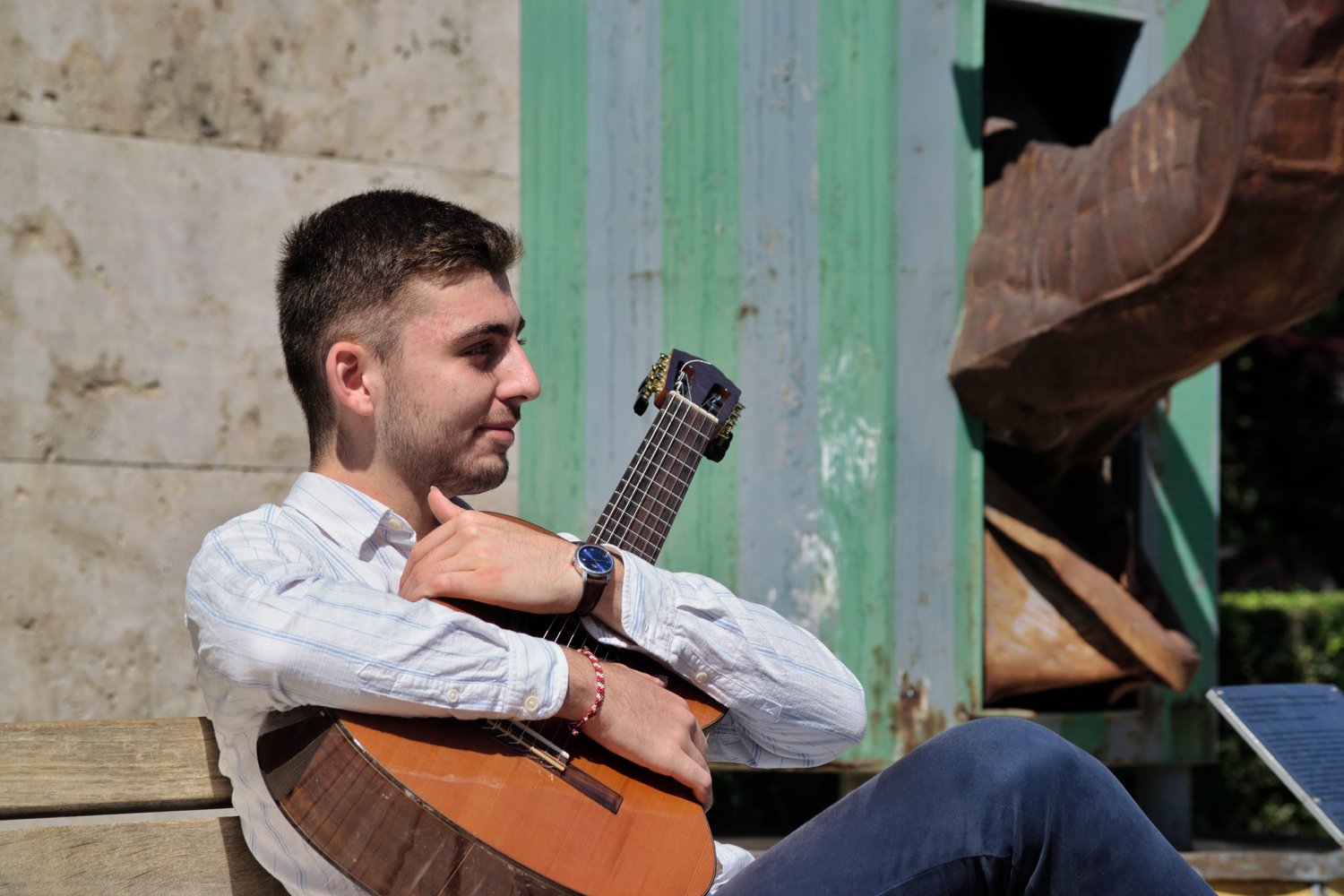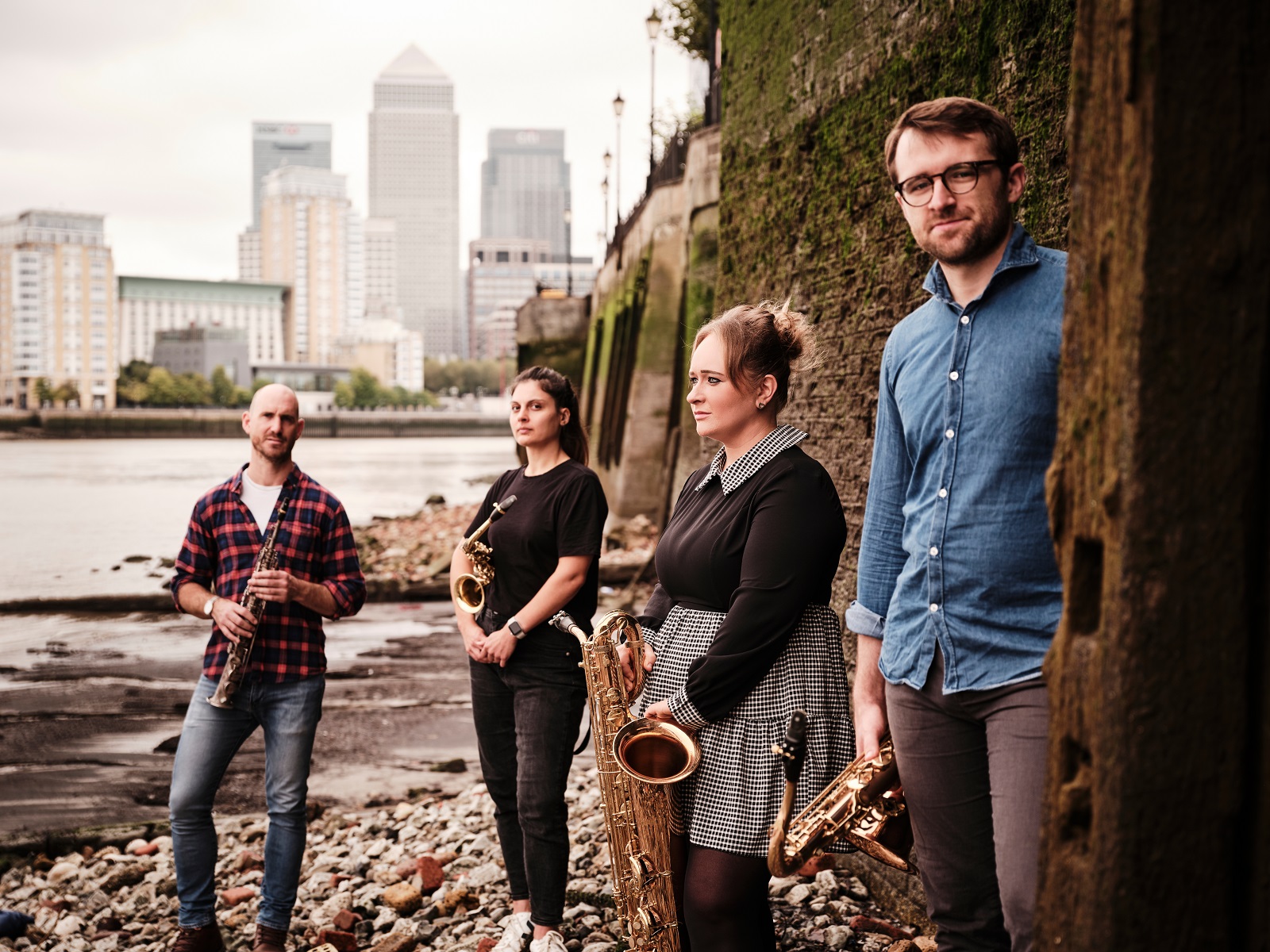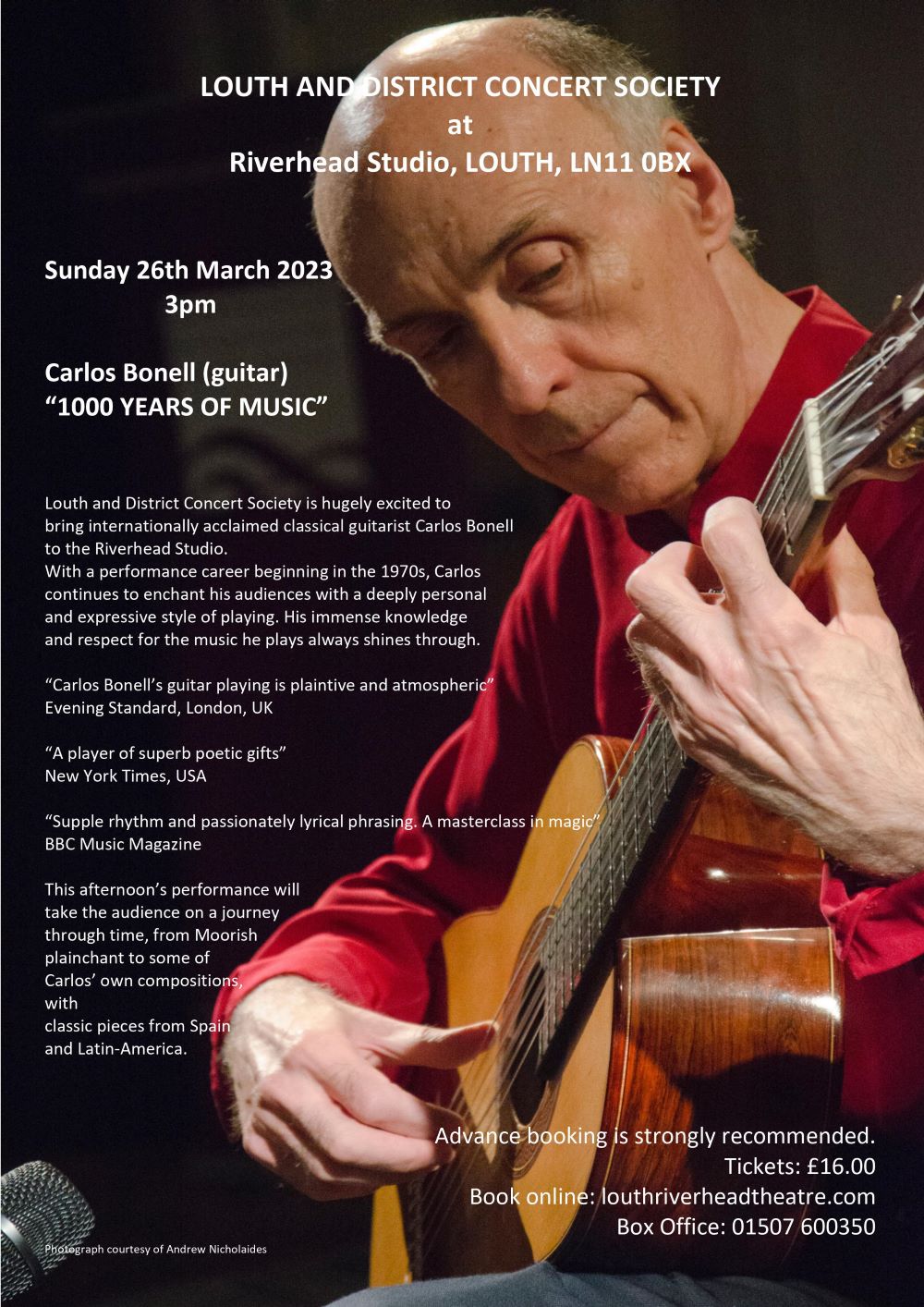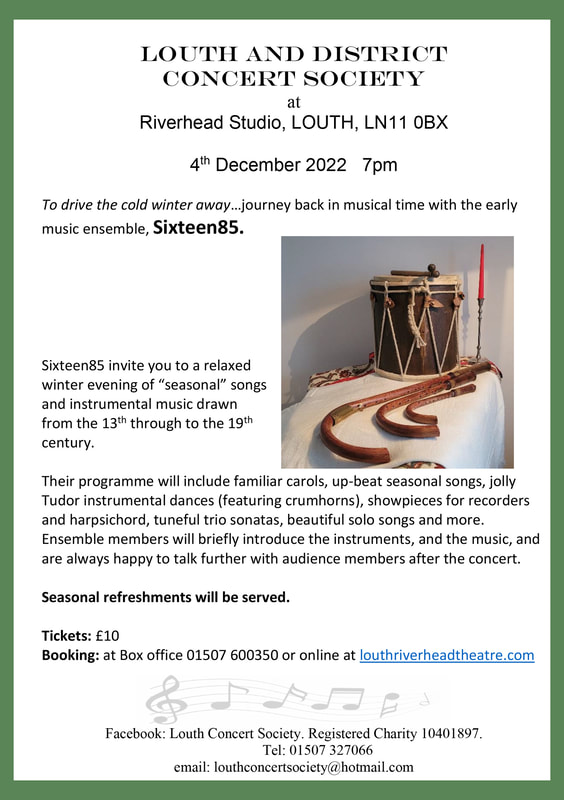To make use of an RSS feed, you need some "feed reader" (or "aggregator") software. Most modern web browsers have feed readers built in.
The RSS feeds for Louth and District Concert Society are listed below...
Louth and District Concert Society upcoming events:
https://www.louthconcertsociety.uk/dbaction.php?action=rss&dbase=events
Louth and District Concert Society news:
https://www.louthconcertsociety.uk/dbaction.php?action=rss&dbase=uploads
Past Performances
Hatty Haynes and Charlie Woof-Byrne
Victor Maslov (replacing Bocheng Wang)
Arie Dakesian

Hugh Mackay & Michael Pandya

Ferio Saxophone Quartet

Photo: Alessandro Tear
Twelfth Night Celebration

Baroque Alchemy

Victor Maslov

Russian Pianist Impresses in Emotionally Intense Recital
Victor Maslov’s concert at St James’ Church, Louth, on 8 October, will be remembered as one of the most emotionally intense piano recitals in the county of recent years.
“The Hero’s Gate of Kiev” from Mussorgsky’s ever popular “Pictures at an Exhibition” (the main piece in the second half) had a Russian pianist wearing a lapel pin in Ukrainian colours playing that most Russian of composers’ music. The potency of the combination was lost on no-one.
Maslov is 26 years old and already a master of the piano. He has average sized hands of extraordinary flexibility – fluttering over the keys like butterflies but with an efficiency that can be converted in an instant to create the most commanding of sounds or, indeed, held in reserve for the most tender of playing.
The three other pieces all came from the decade or so before the First World War. Janacek’s “On an Overgrown Path” (here we were treated to six of the ten miniatures) came across very well. Each a story, memory or reflection captured as if by an old gardener slightly woosey after imbibing absinthe. The last of the six was the most revealing: “The Barn Owl Has Not Flown Away”. In Czeck folk culture the owl is a harbinger of doom. So what could Janacek have been thinking of? And in Rachmaninoff’s first set of “Etude-Tableaux” – plaintive melodies, with sparkling left hand embellishments – Maslov was able to display his exquisite craftmanship.
The concert was organised by Louth and District Concert Society which seems to have undergone a revamp since returning post-Covid, hosting a broader variety of musical styles at a range of venues, while also offering complementary programmes with excellently written notes and interval drinks. All this adds to the sense of occasion of their concerts.
Maslov is to return to Louth in the near future. I am sure that most of those in the 50-plus audience just can’t wait to hear him again.
Programme notes
Trio Kurtag
Innovative Q & A start to engrossing trio concert
Trio Kurtag, three young women, played four string trios, all written by men in their 20s, at the Riverhead Studio, Louth, on Tuesday (June 13). But before the music started the audience were given a five-minute innovative and helpful Question and Answer session with the musicians: Juliette Roos (violin), Yume Fujise (viola) and Eliza Millett (cello).
Beethoven’s grand but not haughty Opus 9 No. 3 from 1797/8 was performed by three very safe pairs of hands with much nuance over its twenty-four minutes in the composer’s favourite ‘dark’ key of C minor. Dark perhaps, but certainly not black. In fact, Beethoven manages a wry smile in the finale and even a joke as a coda.
Alongside this stalwart of the repertoire were three lesser-known works from the first half of the twentieth century: namely (in order of performance) by Gideon Klein (1944), Ernst von Dohnanyi (1902) and Jean Françaix (1933). Indeed, the trio brought out every inflection, folk dance idiom and translucent melody and harmony in these three pieces.
A special highlight of the concert, organised by the Louth and District Concert Society, was the trio by Gideon Klein, a composer not yet listed in the Hutchinson/BBC Music Magazine Encyclopedia but well worth exploring. His life was cut short in a Nazi concentration camp in 1945 having just turned twenty-six. Entering into his scintillating soundscapes somewhat in the shadow of Bartok, we realise instantly what brilliance he demonstrated in his composition and glimpses of what more might have been said. Perhaps the only disappointment of the evening was that we were denied an encore, no doubt due to time constraints with the Trio’s direct return to London that evening. Well done LDCS: a very enjoyable, memorable concert.

Carlos Bonell

Sixteen85




